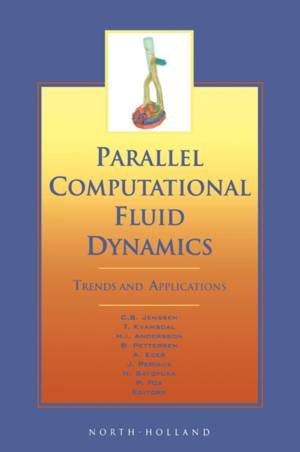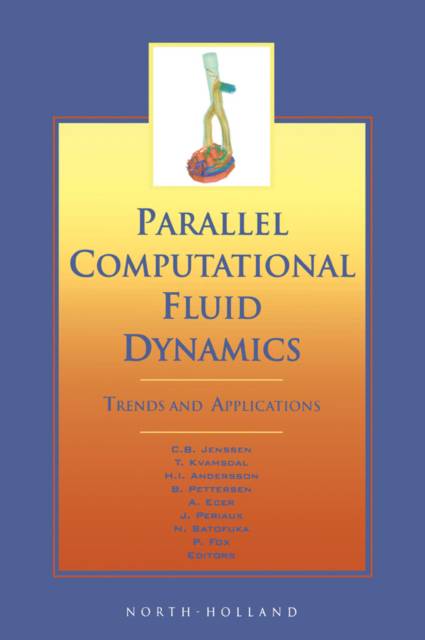
- Retrait gratuit dans votre magasin Club
- 7.000.000 titres dans notre catalogue
- Payer en toute sécurité
- Toujours un magasin près de chez vous
- Retrait gratuit dans votre magasin Club
- 7.000.000 titres dans notre catalogue
- Payer en toute sécurité
- Toujours un magasin près de chez vous
Parallel Computational Fluid Dynamics 2000
Trends and Applications
C B Jenssen, T Kvamdal, H I Andersson, B Pettersen, P Fox, N Satofuka, A Ecer, Jacques Periaux
Livre relié | Anglais
330,95 €
+ 661 points
Description
Parallel CFD 2000, the Twelfth in an International series of meetings featuring computational fluid dynamics research on parallel computers, was held May 22-25, 2000 in Trondheim, Norway.Following the trend of the past conferences, areas such as numerical schemes and algorithms, tools and environments, load balancing, as well as interdisciplinary topics and various kinds of industrial applications were all well represented in the work presented. In addition, for the first time in the Parallel CFD conference series, the organizing committee chose to draw special attention to certain subject areas by organizing a number of special sessions.We feel the emphasis of the papers presented at the conference reflect the direction of the research within parallel CFD at the beginning of the new millennium. It seems to be a clear tendency towards increased industrial exploitation of parallel CFD. Several presentations also demonstrated how new insight is being achieved from complex simulations, and how powerful parallel computers now make it possible to use CFD within a broader interdisciplinary setting.Obviously, successful application of parallel CFD still rests on the underlying fundamental principles. Therefore, numerical algorithms, development tools, and parallelization techniques are still as important as when parallel CFD was in is infancy. Furthermore, the novel concepts of affordable parallel computing as well as metacomputing show that exciting developments are still taking place.As is often pointed out however, the real power of parallel CFD comes from the combination of all the disciplines involved: Physics, mathematics, and computer science. This is probably one of the principal reasons for the continued popularity of the Parallel CFD Conferences series, as well as the inspiration behind much of the excellent work carried out on the subject. We hope that the papers in this book, both on an individual basis and as a whole, will contribute to that inspiration. Further details of Parallel CFD'99, as well as other conferences in this series, are available at http: //www.parcfd.org
Spécifications
Parties prenantes
- Auteur(s) :
- Editeur:
Contenu
- Nombre de pages :
- 604
- Langue:
- Anglais
Caractéristiques
- EAN:
- 9780444506733
- Date de parution :
- 27-04-01
- Format:
- Livre relié
- Format numérique:
- Genaaid
- Dimensions :
- 177 mm x 245 mm
- Poids :
- 1265 g







